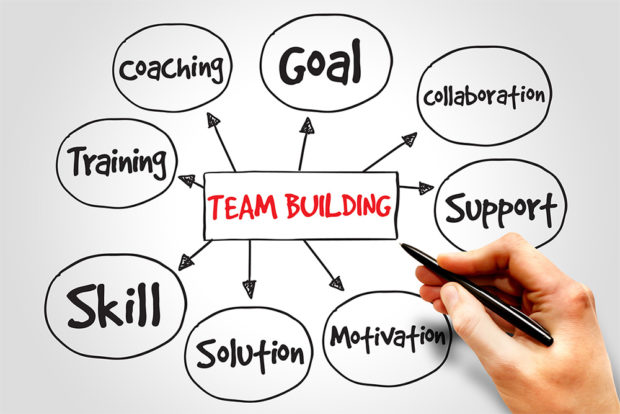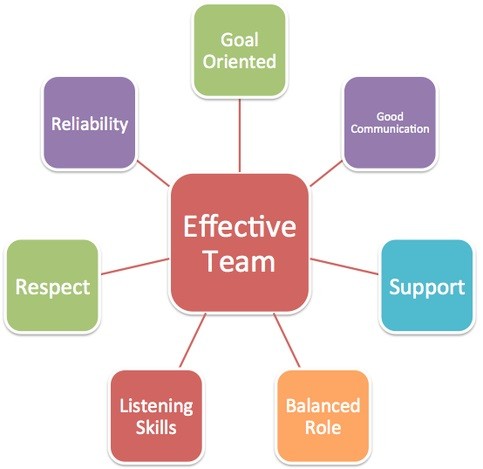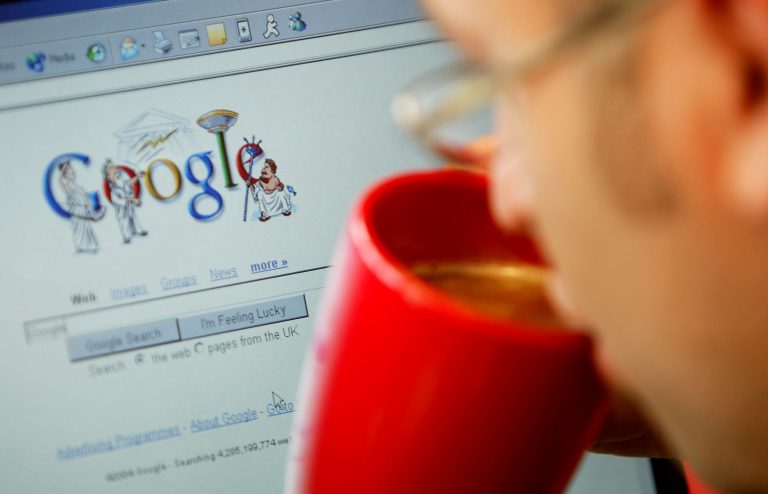What Are Team Building Skills?
Team building skills are the abilities necessary to work effectively with others and contribute to a collaborative and cohesive team. These skills include communication, problem-solving, active listening, conflict resolution, and cooperation.
A strong team is essential for the success of any organization. When individuals come together and work towards a common goal, they can achieve remarkable results. However, building a high-performing team requires more than just assembling a group of talented individuals.
It requires individuals who possess and exhibit team building skills. Team building skills refer to specific qualities and abilities that enable individuals to work well with others and contribute positively to the team’s dynamics. These skills involve effective communication, which is crucial for conveying ideas, sharing information, and resolving conflicts. Active listening also plays a significant role, as it helps team members understand each other’s perspectives and foster empathy within the group. Problem-solving and conflict resolution skills are also vital in team building. These abilities allow team members to identify and address challenges, find innovative solutions, and resolve conflicts in a constructive manner. Cooperation, another essential team building skill, involves collaborating with others, being supportive, and fostering a sense of unity within the team. Team building skills are crucial for creating a cohesive and high-performing team. By developing and exercising effective communication, problem-solving, active listening, conflict resolution, and cooperation skills, individuals can contribute to a successful and productive team environment.
(89).jpg)
Credit: www.proprofs.com
The Importance Of Team Building Skills
Team building skills are essential for the success of any organization. Building strong relationships, improving communication, and enhancing collaboration are key aspects of team building. Developing these skills not only fosters a positive work environment but also improves productivity and overall team performance. Let’s take a closer look at each aspect and understand their significance.
Building Strong Relationships
Strong relationships within a team are crucial as they establish trust, foster a sense of belonging, and promote a positive work atmosphere. When team members have a strong bond, they are more likely to support and collaborate with each other, resulting in increased efficiency and effectiveness. Building strong relationships also helps create a supportive environment where individuals feel comfortable sharing ideas, seeking feedback, and resolving conflicts.
Improving Communication
Effective communication is the foundation of successful teamwork. By honing their communication skills, team members can express their ideas clearly, actively listen to others’ viewpoints, and provide constructive feedback. Improved communication leads to a better understanding of goals, expectations, and tasks, reducing misunderstandings and conflicts. Moreover, open and transparent communication encourages a culture of innovation, where team members feel empowered to share unique insights and propose creative solutions.
Enhancing Collaboration
Collaboration is vital in achieving collective goals and driving organizational success. Developing collaboration skills involves working together towards a common objective, leveraging individual strengths, and valuing diverse perspectives. When team members collaborate effectively, they pool their expertise, find innovative solutions, and make informed decisions. Collaboration fosters a sense of camaraderie, propels creativity, and maximizes each team member’s contribution, resulting in increased productivity and improved outcomes.
Developing Team Building Skills
Team building skills are essential for fostering collaboration and camaraderie among team members. These skills involve effective communication, problem-solving, and trust-building, enabling individuals to work together towards common goals.
Developing Team Building Skills Team building skills are crucial for the success of any organization. A team that works well together is more productive, efficient, and motivated. On the other hand, a team that lacks harmony and cooperation can hinder progress and cause unnecessary conflicts. With that in mind, it is essential to focus on developing team building skills. Understanding Individual Strengths Understanding the strengths and capabilities of each team member is essential for effective team building. HTML code: “`htmlUnderstanding Individual Strengths
“` When team members have a clear understanding of their own strengths, they can contribute to the team in a meaningful way. By recognizing and acknowledging each individual’s unique skills and abilities, the team can be assigned tasks that align with the strengths of its members. Promoting Trust and Respect Trust and respect are the foundation of a strong team. When team members trust and respect each other, they are more likely to collaborate, share ideas, and work towards a common goal. HTML code: “`htmlPromoting Trust And Respect
“` Leaders should create an environment that encourages trust and respect among team members. This can be achieved by fostering open communication, promoting transparency, and valuing each team member’s input. When everyone feels valued and respected, it creates a positive and supportive atmosphere that drives team success. Encouraging Active Listening Active listening is a vital skill for effective team building. When team members actively listen to each other, they can understand different perspectives, solve problems collaboratively, and avoid misunderstandings. HTML code: “`htmlEncouraging Active Listening
“` To encourage active listening, team leaders can implement strategies such as promoting turn-taking during meetings, providing opportunities for brainstorming and sharing ideas, and fostering a safe space for everyone to express their thoughts. By actively listening, team members can work towards finding the best solutions and achieving the team’s objectives. In conclusion, developing team building skills is crucial for creating a high-performing team. Understanding individual strengths, promoting trust and respect, and encouraging active listening are key components of effective team building. By focusing on these areas, teams can enhance collaboration, productivity, and overall success.Types Of Team Building Activities
Team building activities are essential for fostering collaboration, communication, and camaraderie among team members. Organizing various types of team building activities helps in breaking the ice, improving problem-solving skills, and creating memorable experiences. Let’s explore some popular types of team building activities that can bring individuals together and promote teamwork.
Icebreakers And Energizers
Icebreakers and energizers are short and interactive activities designed to warm up the group, relax participants, and foster social interaction. These activities play a crucial role in breaking down barriers and creating a comfortable atmosphere for team members to get to know each other. Whether it’s a simple icebreaker game or a fun energizer that boosts enthusiasm, these activities help build connections and establish a positive team dynamic. Some popular icebreaker and energizer activities include:
- Two Truths and a Lie: Each team member shares three statements about themselves, including two true facts and one false. The group guesses which statement is the lie, encouraging conversation and shared laughter.
- Human Knot: Team members form a circle, reach across and grab hands with two different people. The group must then work together to untangle themselves without letting go of each other’s hands, fostering communication and problem-solving skills.
- Dance Off: Play some energetic music and let team members show off their dance moves. Dancing together encourages collaboration, breaks inhibitions, and boosts team spirit.
Problem-solving Challenges
Problem-solving challenges are engaging team activities that require collaboration, critical thinking, and creativity to solve specific problems. These activities help team members develop strategies, enhance their problem-solving mindset, and improve decision-making abilities. By working together on these challenges, teams learn to leverage each member’s strengths and brainstorm effective solutions. Here are some examples of problem-solving challenges:
- Escape Room: Teams are locked in a room and given a set of clues and puzzles to solve in order to find the key and escape. This challenge encourages teamwork, communication, and creative thinking.
- Tower Building: Teams are provided with limited resources and must work together to build the tallest tower possible. This challenge promotes collaboration, resource management, and innovative problem-solving.
- Scavenger Hunt: Teams must complete a series of tasks or find specific items within a given timeframe. This challenge enhances problem-solving skills, communication, and teamwork.
Outdoor Adventures
Outdoor adventures involve team building activities that take place outside of the office environment. These activities provide a refreshing change of scenery, stimulate collaboration in a different context, and build trust among team members. From adrenaline-pumping adventures to nature-inspired challenges, outdoor activities push individuals out of their comfort zones and encourage teamwork. Here are some examples of outdoor team building adventures:
- Ropes Course: Team members navigate through a course consisting of obstacles, high ropes, and zip lines. This activity builds trust, boosts confidence, and promotes effective communication.
- Hiking and Camping: Teams embark on a hiking trip or camping expedition, overcoming physical challenges and relying on each other’s support. This adventure strengthens team bonds, encourages camaraderie, and promotes resilience.
- Team Sports: Engaging in team sports like soccer, volleyball, or basketball helps foster teamwork, communication, and collaboration while promoting a healthy and active lifestyle.

Credit: www.slideteam.net
Tools And Strategies For Team Building
Building a cohesive and high-performing team requires more than just the right mix of skills and personalities. It involves utilizing various tools and strategies to foster effective communication, collaboration, and mutual understanding among team members. In this article, we will explore some key tools and strategies that can enhance team building within an organization.
Effective Leadership
Strong and effective leadership is crucial in team building. A skilled leader sets the tone for the team, provides direction, and inspires each member to perform their best. They truly understand the strengths and weaknesses of each team member, empowering them and assigning tasks accordingly. An effective leader also encourages open communication, actively listens, and resolves conflicts promptly, creating a positive and productive team environment.
Creating Shared Goals
Establishing shared goals is an essential step in team building. When team members are aligned towards a common purpose, they feel a sense of unity and motivation to work together toward the achievement of those goals. Shared goals foster collaboration, coordination, and accountability among team members. By clearly defining these goals and ensuring that everyone understands the importance of their role in achieving them, the team can work synergistically and maximize their collective efforts.
Providing Constructive Feedback
Constructive feedback plays a crucial role in team building and continuous improvement. It allows team members to learn, grow, and develop their skills. Providing feedback in a constructive manner helps to strengthen relationships, promotes a culture of trust, and enables individuals to understand their areas of improvement without feeling criticized. Effective team leaders provide regular feedback, highlighting both achievements and areas for improvement, to facilitate personal and professional growth within the team.
Measuring The Impact Of Team Building
Team building skills are essential for measuring the impact of effective collaboration. Building trust, communication, and problem-solving abilities within a team contribute to overall productivity and success.
Improved Team Performance
One of the primary ways to measure the impact of team building is through improved team performance. When team building activities are implemented effectively, they can provide a significant boost to a team’s overall performance. These activities are designed to promote collaboration, enhance communication, and foster a sense of unity among team members.
- Enhanced collaboration: Team building activities encourage individuals to work together towards a common goal, fostering a sense of collaboration and teamwork. This leads to increased productivity and efficiency.
- Improved communication: Effective team building activities provide opportunities for team members to interact and communicate with each other in new and different ways. This improves communication skills and reduces misunderstandings or miscommunications that can hinder productivity.
- Stronger relationships: Team building activities help team members get to know each other on a deeper level, creating strong bonds and trust. This enhances cooperation and collaboration, leading to improved performance.
- Goal alignment: Through team building, team members gain a better understanding of the goals and objectives of the team as a whole. This alignment leads to a more focused and efficient approach towards achieving those goals.
Increased Employee Satisfaction
Measuring the impact of team building also involves assessing its effect on employee satisfaction. Engaged and satisfied employees are more likely to be motivated, productive, and committed to their work. Team building activities play a crucial role in fostering employee satisfaction by creating a positive work environment and cultivating a strong sense of belonging.
- Boosted morale: Team building activities are designed to uplift employee morale, making them feel valued and appreciated. This leads to increased job satisfaction and overall happiness in the workplace.
- Improved work-life balance: Team building activities often involve fun and recreational elements that help employees relax and unwind. This contributes to a healthier work-life balance, leading to greater job satisfaction and overall well-being.
- Enhanced job motivation: When employees feel connected to their team and enjoy their work environment, they are more likely to be motivated and passionate about their job. Team building activities can reignite employees’ enthusiasm and dedication to their work.
Reduced Conflict And Turnover
Another crucial aspect of measuring the impact of team building is evaluating its effect on reducing conflict and turnover within the team. An environment plagued by conflict and high turnover can hinder team productivity and overall success. Team building activities address these issues by promoting positive relationships, resolving conflicts, and creating an inclusive and harmonious work atmosphere.
- Conflict resolution: Team building activities provide a platform for team members to address and overcome conflicts in a controlled and supportive environment. This leads to improved communication, better conflict resolution skills, and a reduction in workplace tension.
- Increased trust: By participating in team building activities, team members develop a sense of trust and mutual respect. This reduces conflicts triggered by misunderstandings or lack of trust, contributing to a more harmonious work environment.
- Decreased turnover: When team members feel connected, supported, and valued, they are less likely to seek opportunities elsewhere. Team building activities help foster these positive emotions, reducing turnover rates and promoting team stability.

Credit: www.mscareergirl.com
Frequently Asked Questions On What Are Team Building Skills?
What Are Team Building Skills And Why Are They Important?
Team building skills refer to the abilities and qualities that help individuals work well together toward a common goal. These skills are important as they foster trust, collaboration, and effective communication within a team.
How Can Team Building Skills Enhance Productivity And Performance?
Team building skills can enhance productivity and performance by promoting a positive work environment, improving communication and problem-solving abilities, increasing motivation and engagement, and fostering a sense of belonging and unity among team members.
What Are Some Examples Of Team Building Skills That Can Be Developed?
Examples of team building skills that can be developed include effective communication, active listening, conflict resolution, collaboration and cooperation, adaptability, empathy, trust-building, and goal setting. These skills enable teams to work together harmoniously and achieve their objectives more efficiently.
Conclusion
To sum up, team building skills are essential for fostering strong, productive relationships within a group. By promoting effective communication, collaboration, and problem-solving, these skills enable teams to work cohesively towards achieving shared goals. Developing and honing team building skills is crucial in today’s interconnected and dynamic work environment.
Ultimately, harnessing these skills can lead to increased productivity, higher morale, and overall team success. So, invest in cultivating team building skills to unlock your team’s full potential.




